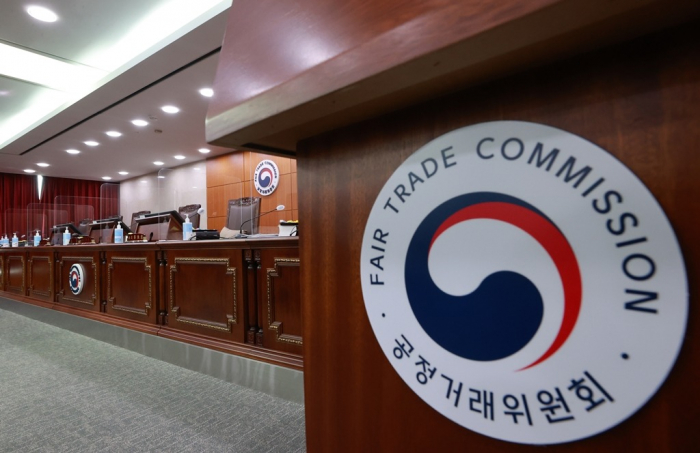Automobiles
S.Korea to fine German carmakers for alleged R&D collusion
The FTC says the collusion caps competition by preventing the development and launch of diesel cars with better emissions tech
By Feb 09, 2023 (Gmt+09:00)
2
Min read
Most Read
LG Chem to sell water filter business to Glenwood PE for $692 million


Mirae Asset to be named Korea Post’s core real estate fund operator


KT&G eyes overseas M&A after rejecting activist fund's offer


Meritz backs half of ex-manager’s $210 mn hedge fund


StockX in merger talks with Naver’s online reseller Kream



South Korea’s antitrust body has preliminarily decided to impose a combined fine of 42.3 billion won ($33.5 million) on four German automakers – Mercedes-Benz, BMW, Audi and Volkswagen AG – for allegedly colluding to develop emission systems for diesel passenger cars, marking the first punitive action for complicity related to carmakers’ research and development.
Korea's Fair Trade Commission said on Thursday it would impose a penalty of 20.7 billion won on Mercedes-Benz, 15.7 billion won on BMW and 6 billion won on Audi.
“The decision is the first case of inflicting a punishment for collusion by companies related to the R&D of technology to reduce vehicle emissions,” the FTC said in a statement.
“It is significant as it expanded consumer choice for eco-friendly cars by recognizing not only product prices and quantity but also eco-friendliness as a key parameter of competition.”
AGREE TO REDUCE USE OF EMISSION REDUCTANT
Those automakers decided to install equipment such as selective catalytic reduction (SCR) devices in their cars with diesel engines for post-treatment of nitrogen oxides (NOx) generated in the process of burning the fuel for automobiles in 2014, when the world’s authorities including those in South Korea and the European Union strengthened regulations against the air pollutants, according to the FTC.
An SCR device supplies urea solution to exhaust gas to convert NOx into nitrogen and water. The system’s key technology is the composition of the urea solution supply strategy as NOx emissions vary depending on the reductant supplied.
The German carmakers agreed to set up SCR software in a way that cuts the consumption of urea solution to allow vehicles to drive certain distances without refilling the reductant, the competition watchdog said.
EMISSIONS SCANDAL
The FTC judged that the four automakers' agreement limited competition by preventing the development and launch of diesel passenger cars with better technology to cut NOx emissions.
The joint decision on the type and standard of products not only reduces the incentives for innovation but also limits options for consumers, it said, adding the type and standard of products are critical components of competition and must be determined by free market competition.
The FTC said the basic function of the SCR software developed by the agreement led to an emission scandal for three of those carmakers, except BMW.
The antitrust regulator has already imposed a fine of 20.2 billion won on Mercedes-Benz and a penalty of 831 million won on Audi Volkswagen for allegedly overstating their emission reduction performances.
Write to So-Heon Kim at alpha@hankyung.com
Jongwoo Cheon edited this article.
More to Read
-
 AutomobilesBMW surpasses Mercedes in Korean sales for 1st time in 10 years
AutomobilesBMW surpasses Mercedes in Korean sales for 1st time in 10 yearsMay 02, 2025 (Gmt+09:00)
-
 Business & PoliticsTrump Jr. meets Korean business chiefs in back-to-back sessions
Business & PoliticsTrump Jr. meets Korean business chiefs in back-to-back sessionsApr 30, 2025 (Gmt+09:00)
-
 Korean chipmakersSamsung in talks to supply customized HBM4 to Nvidia, Broadcom, Google
Korean chipmakersSamsung in talks to supply customized HBM4 to Nvidia, Broadcom, GoogleApr 30, 2025 (Gmt+09:00)
-
 EnergyLS Cable breaks ground on $681 mn underwater cable plant in Chesapeake
EnergyLS Cable breaks ground on $681 mn underwater cable plant in ChesapeakeApr 29, 2025 (Gmt+09:00)
-
 Business & PoliticsUS tariffs add risk premium to dollar assets: Maurice Obstfeld
Business & PoliticsUS tariffs add risk premium to dollar assets: Maurice ObstfeldApr 29, 2025 (Gmt+09:00)
Comment 0
LOG IN


